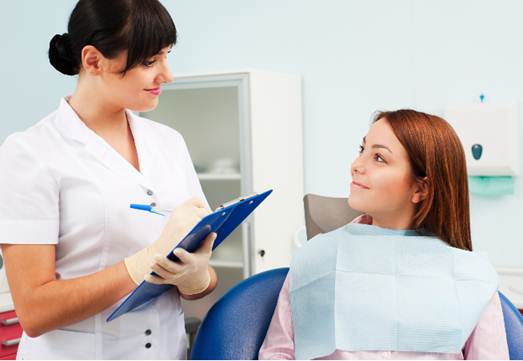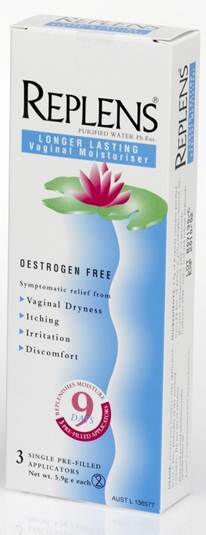…But it’s not always easy, especially when
it comes to embarrassing health problems. These are the top six conditions
we’re too shy to ask about – and the latest, no-nonsense advice on how to cope
with them

See your GP as soon as possible
Q:
Since having children, leaking has become a real problem for me. I use panty
liners and always wear dark clothes just in case, but that’s hardly ideal.
A: You’re
not alone. Research says a third of us are affected by stress incontinence. But
that’s just those who come forward – many experts believe it could be a problem
for half the female population. Jane Dixon of the Bladder and Bowel Foundation
says: ‘We get frequent phone calls to our helpline from young mums who don’t
want to play on the trampoline with their kids in case they have an accident.
This has a huge impact on their quality of life.’

Pelvic floor exercises
The message is: pelvic floor exercises do
work. The latest research using MRI scans means we now know much more about how
to locate and exercise the right muscles. Sit or stand with legs slightly apart
and lift your pelvic floor inward, as if you needed to urinate or were gripping
a tampon. Lift upwards – try counting so you don’t hold your breath, and make
sure your belly, thighs and buttocks stay relaxed. Do a set of slow
contractions (lift and contract for 10 second, relax for 10 seconds, and repeat
10 times) and a set of fast contractions (lift and contract for one second,
relax for one second, and repeat 10 times), six times a day. But remember to
relax your pelvic floor completely between each set. You should notice a
difference after 15 weeks – if you don’t, see your GP as soon as possible.
Q: How can I find out what is giving
me wind? Often I’ll have no problem, but other days I’m too scared to bend down
to the lower shelves in the supermarket.
A: Flatulence is a prefectly matural part
of digestion and is unlikely to be anything serious, unless it’s accompained by
a change in bowel habits, too – in which case you should see your GP
immediately. Eat and drink slowly, chewing your food properly, and avoid fizzy
drinks. To help you find the cause, write down everything you eat and note when
you pass wind. And don’t forget: food takes 12 to 48 hours to work through your
digestive system, so the cause could be something you ate a day or two before.
Q: I love cooking, and tend to be
quite generous with garlic and spices. I’m worried this is making my breath
smell – I’d be so embarrassed if people noticed it.
A: Everyone’s breath smells first thing in
the morning and after eating strong foods, but if the problem is more
persistent, gum disease could be the cause. To check if your breath is fresh or
not, lick the inside of your wrist, let it dry, then sniff – if it smells
strong and unpleasant, chances are yoyr breath does, too.

If
you’re still worried, ask your dentist or your GP – and don’t worry, they hear
this question all the time!
Oral hygiene is key – you should brush for
two minutes twice a day using a medium-tufted toothbrush, with small circular
movements around every tooth. But even that will only clean about 60% of the
tooth’s suaface, so you need to use interdental brushed or floss to get in to
the gaps between. When food gets stuck, it breaks down and produces the gases that
cause bad breath. Using a tongue scraper (or a down-turned spoon) as well as a
mouthwash specifically targeted to treat bad breath will also help. If you’re
still worried, ask your dentist or your GP – and don’t worry, they hear this
question all the time!
Q: Sometimes when I go to the loo I
notice blood on the toilet paper. It’s a bit alarming, but I’m not sure if it’s
serious enough to see my GP about.
A: It might be nothing to worry about – it
could be a small tear around the anus, or piles, which are swollen blood
vessels. While these problem are common, the bleeding could also be a sign of
something more serious, such as bowel cancer, so always see a GP if you are
concerned.
Piles will often heal themselves, but your
GP will be able to recommend treatments – including banding, injections and
creams – weith surgery as a last resort. ‘The worst part is the worry factor,’
says Jane Dixon of the Bladder and Bowel Foundation. ‘Just look at the number
of over-the-counter medications advertised for haemorrhoids, and all because
people are too embarrassed to see their doctor.’ But it’s always worth it.
Visit
Q: Summer is a night mare for me – I
have so much hair on my arms and things that I can only wear long-sleeved tops
and trousers. What can I do?
A: Body hair where you don’t expect it can
destroy your self-confidence, particularly when it grows on your face, nipples
or below your navel. It could be down to hormones, but for many women it’s
simply a question of genes – Mediterranean and Asian women have a different
hair distribution from Caucasians’ and Scandinavians’. But if excess body hair
is accompained by obesity and irregular periods, it could also be a symptom of
polycystic ovary syndrome (PCOS), and you should visit your GP.
Removing hair via laser or electrolysis can
be effective, but both are long and expensive processes, and unlikely to be
available on the NHS. Your GP can advise you on the pros and cons of each, and
explain the different hormonal treatment options, from creams to the Pill. If
you have PCOS, you’ll be referred to a specialist – there isn’t a cure, but
symptoms can be treated by lifestyle changes, hormonal treatments, medication
and surgery.
Q: We used to have a great love life,
but now I dread my husband making a move – sex has become painful because I’m
so dry. I’ve never had to use a lubricant before – is this the answer, and are
they perfectly safe?
A: Some women have problems with
lubrication during sex when they’re going through the menopause or just after
having a baby, due to the drop in oestrogen levels. The Pill can also have this
side-effect, or it could be a symptom of a vaginal infection like thrush. It is
also possible that there’s an emotional cause, such as relationship problems,
stress or depression.

Replens vaginal gel
Using a lubricant, such as Replens vaginal
gel, is safe and very effective. For menopausal women, HRT may be appropriate
if there are other symptoms. However, there also many vaginal oestrogen creams,
tablets and pessaries that can help. New mothers should find things return to
normal in the first six months, and if you’re concerned the Pill could be the
culprit, discuss other options with your GP. If you think there could be a link
to your emotional wellbeing, it might help to talk to a sex therapist – more
information and contact details are available at www.relate.org.uk.